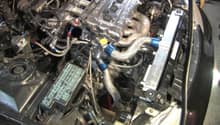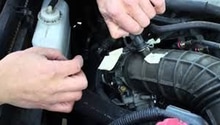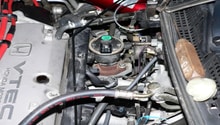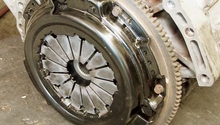Honda Civic: Why Does My Car Shake When Releasing Clutch in First Gear?
The shaking in your Honda Civic when in first gear may be caused by a problem small or large. Hopefully, for you it's the former. But whatever the case may be, continue reading to repair the shaking problem or at least figure out what your next step will be.
This article applies to the Honda Civic (1992-2000).
The clutch in your Honda Civic is used to engage different gears while driving. When shifting into first gear, you are forcing one of the highest torque loads onto the clutch because it needs power to get the car running from a dead stop. This is why your car may shake, or show signs of other odd behaviors when slipping the transmission into first gear and not the others. It's important to diagnose this problem as soon as possible because a problem in the transmission can quickly escalate to bigger and more expensive damages. This article discusses the possible causes of why your Honda Civic shakes when in first gear.

Materials Needed
- Ratchet, extension, and metric socket set
- Honda Civic transmission fluid
- Sheet of paper
- Shop rags
Step 1 – Do a fluid inspection
The transmission fluid might need to be replaced.
Before getting into any technical inspections, it is recommended that you first check and change the transmission fluid. If you look right behind the distributor in your Civic's engine, you can see the yellow transmission dipstick. Remove the dipstick, and check for two things. That the fluid level is above the crosshatch, and that the fluid is light in color.
If the transmission fluid is in good condition but at a low level, top it off. If the fluid is dark or has a burnt smell to it, flush the transmission and pour in genuine Honda Civic transmission fluid. Raise the car to find the fill and drain plugs underneath the transmission. Remove the bolt from the bottom drain plug, and refill the transmission through the higher fill plug. New transmission fluid for your Honda Civic costs between $8 to $12 for one quart.
If you see leaks around the torque converter, the best (but priciest option) is to take your Civic to a professional and have the seal replaced. This can be a hefty job for the average car owner, and it is recommended having this done quickly as well as properly.

Figure 1. Location of transmission fill and drain plugs. 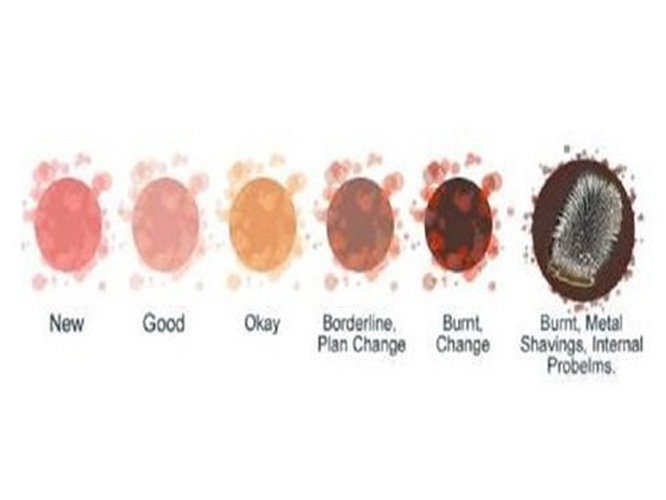
Figure 2. Transmission fluid color comparisons.
If the transmission fluid in your Civic is in good condition, move on to the following step.
Step 2 – Inspect the motor mounts
Broken or cracked motor mounts can cause the car to shake because it isn't fully decoupling the car from the vibration of engaging into first gear.
To inspect the motor mounts, take a sheet of paper and try to slide it in between the mount and the frame. Visibly, it might look like a solid connection. But if the paper is able to slide in between, the motor mounts are considered to be loose or damaged. Any damaged motor mounts should be replaced immediately since the force from the engine can cause the other mounts to crack as well. If your motor mounts are too stiff, swapping with softer ones will remedy the shaking as well.
If you replace the motor mounts yourself, a net set costs between $50 and $450. Expect to pay an additional $150 to $200 if you have the motor mounts replaced at the dealership or your preferred auto shop.
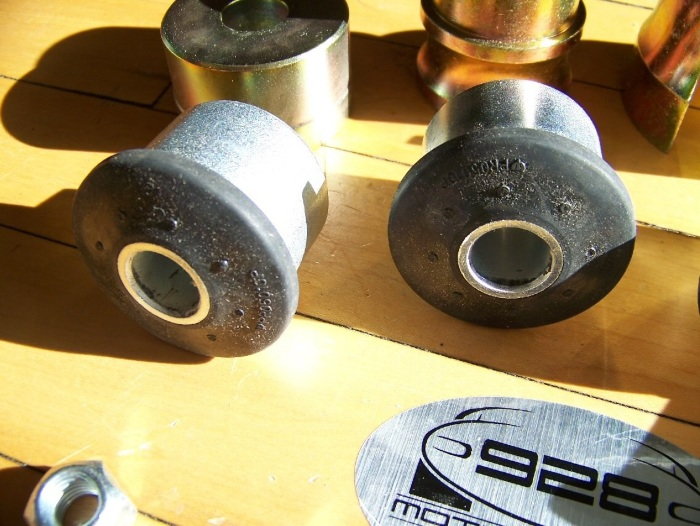
If the motor mounts are not cracked or broken, move on to the following step.
Step 3 – What is the clutch type
For Honda Civics with engine upgrades and higher horsepower, the clutch may have been installed with a puck type disc.
Pluck type clutches have a stronger catch as well as grip, and are less prone to slipping. However, they are a lot rougher for daily driving use. Also, they are known to chatter, especially going into first gear. If you have a puck type disc, consider swapping it for a full face clutch disc. A new clutch kit costs upwards of $50.

If your clutch disc has been replaced purposely but the shaking is still excessive, move on to the following step.
Step 4 – Inspect the clutch and flywheel
The clutch and flywheel may have been contaminated with engine oil.
To thoroughly inspect the clutch and flywheel, the transmission will have to be completely removed. Oil on these two internal components of the transmission can cause slippage and chattering. To fix this, they will need to be properly cleaned or replaced, but it depends on how much damage the contaminants and slippage have caused.
If you're not mechanically inclined, it is highly suggested taking your Civic to a shop and have it diagnosed as well as repaired by an automotive professional. The cost for labor alone (getting the transmission inspected and the clutch/flywheel replaced) starts at $500.
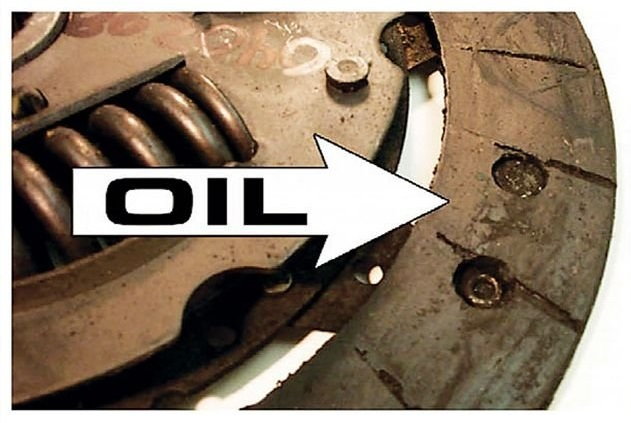
Related Discussions
- Car Shakes When Releasing Clutch In First Gear - Honda-Tech.com
- Clutch Got Oil-Soaked Now Slipping - Honda-Tech.com
- Warped Flywheel - Honda-Tech.com

